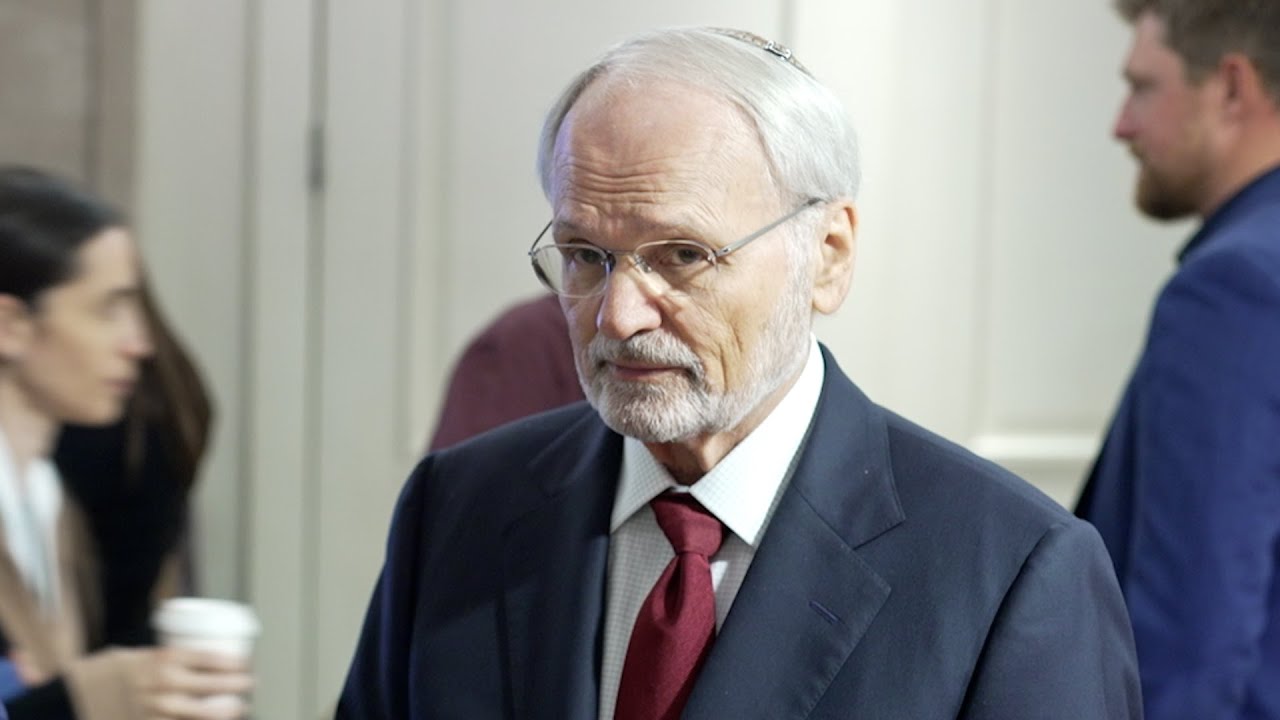“[Israeli Foreign Minister] Gideon Sa’ar spoke to all the Jewish organizations in February and pleaded with them to publicly oppose a Palestinian state. Only my organization did,” Klein said.
By David Isaac
(April 28, 2025 / JNS) Politicians, intellectuals and activists agreed on Sunday that applying Israeli sovereignty over Judea and Samaria is the only viable path to securing Jewish rights and safety in the Land of Israel.
At the inaugural JNS International Policy Summit in Jerusalem, panelists said the Hamas attack on Oct. 7, 2023—which left 1,200 Israelis dead—signaled the dangers of allowing a Palestinian state to be established in Israel’s biblical heartland. Such a development, they warned, would expose Jewish communities to even greater threats.
Knesset Member Ohad Tal (Religious Zionism Party) argued that by refraining from imposing sovereignty, Israel was inviting further violence.
“Palestinians don’t engage in terrorism because they lack hope, but because they believe they can drive the Jews into the sea,” Tal said. “Applying sovereignty deprives them of that hope and is the only relevant solution.”
Longtime activist Nadia Matar, co-chair of the Sovereignty Movement, echoed the sentiment.
“October 7 was a watershed moment,” she said. “The massacre and the support it received from Arabs in Gaza, Judea and Samaria proved we cannot live under illusions. Granting citizenship or residency to populations that glorify terror would be national suicide.”
Yisrael Ganz, head of the Binyamin Regional Council and chairman of the Yesha Council, pointed to Gaza as a cautionary example, describing it as a de facto Palestinian state under Hamas rule—with catastrophic results.
Several speakers emphasized the geographical vulnerability of central Israel to attacks launched from Judea and Samaria. Yigal Dilmoni, co-founder of American Friends of Judea and Samaria, noted that Kibbutz Be’eri, near Gaza, suffered a massacre despite being three kilometers from the border. Meanwhile, the central Israeli city of Kfar Saba lies only one kilometer from Qalqilya, a major Arab city in Samaria.
“No reasonable person in Israel thinks we can solve this by creating another terrorist state in the mountains of Judea and Samaria,” Dilmoni said. “Sovereignty is the only path forward.”
American Jewish Groups Criticized
Morton Klein, president of the Zionist Organization of America, criticized American Jewish organizations for failing to rally behind Israeli sovereignty.
“[Israeli Foreign Minister] Gideon Sa’ar spoke to all the Jewish organizations in February and pleaded with them to publicly oppose a Palestinian state. Only my organization did,” Klein said.
He named the Anti-Defamation League (ADL) and the American Israel Public Affairs Committee (AIPAC) as examples of groups that continued to support a Palestinian state post-Oct. 7. Even the Orthodox Union declined to take a public stance against it, telling Klein it was “too controversial.”
“We must fight to make it clear to Congress that Jews oppose a Palestinian state and support sovereignty,” Klein said.
Klein made his remarks during the “State Solution Forum” on April 27.
Debate Over Trump’s “Deal of the Century”
The panel also debated former U.S. President Donald Trump’s “Deal of the Century,” a plan during his first term that proposed recognizing Israeli sovereignty over parts of Judea and Samaria while also allowing for a Palestinian state.
Israeli author and political commentator Gadi Taub called the rejection of the plan a “missed opportunity,” arguing that the Palestinians—who had already refused a deal offering 95% of the territory—would never have accepted just 70%.
David Weinberg, managing senior fellow at the Misgav Institute, agreed. “We need to act. We need to seize the opportunities that present themselves,” he said.
Matar said she was proud that her movement had helped torpedo the plan. Dilmoni pointed out that the Trump administration’s booklet mentioned a Palestinian state 160 times but never once mentioned sovereignty.
Itamar Marcus, founder of Palestinian Media Watch, said the deal was based on the mistaken premise that Judea and Samaria belonged to the Palestinians and offered them parts of Israel’s Negev Desert as compensation. He warned that Israel could not assume Palestinians would always reject such offers.
Arab journalist Khaled Abu Toameh expressed frustration at the theoretical nature of the debate.
“While we sit here talking about plans to apply Israeli sovereignty, the Palestinian Authority is already creating facts on the ground,” he said, pointing out that the P.A. operates with 45,000 security forces, a court system, a central bank, and functioning municipalities.
This article was originally published in JNS.
